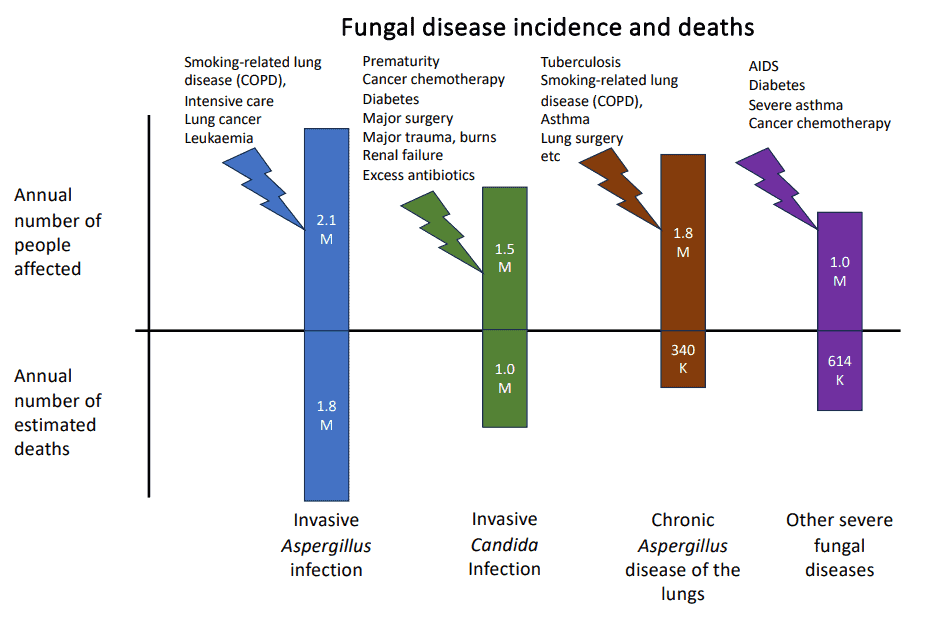
Fungal Disease: Surpassing Tuberculosis, Malaria, Hepatitis, and Pneumonia, Accounting for 6.7% of ±55 Million Annual Death Toll Globally.
New estimates of the annual incidence of severe fungal infections are released today in a paper in Lancet Infectious Diseases, showing about 6.5 million affected, leading to 3.7 million deaths every year, as opposed to the previously estimated 1.5-2.0 million per year.
Over the last decade, GAFFI (Global Action for Fungal Infections), alongside its partners and collaborators, has published over 85 individual country or disease estimates of serious fungal infections. The new estimate consolidates a wealth of information and data, incorporating previously un-estimated fungal infections, and revises existing figures.
Dr David Denning, Professor of Infectious Diseases in Global Health at the University of Manchester, Senior Advisor and former Chief Executive of GAFFI, author of the new publication said:
“Fungal disease is more common than usually appreciated by doctors and public health professionals. The number of deaths from fungal disease is likely double what was previously estimated. Fungal disease incidence appears to be rising, but improved diagnosis and awareness with many more high-quality population studies is the most important factor in the apparent increase in cases and deaths.”
Globally, with approximately 55 million total deaths recorded annually, fungal diseases may be wholly or partly responsible for 6.7% of these deaths – surpassing the impact of tuberculosis, malaria, hepatitis, or pneumonia. An important distinction in evaluating deaths from fungal disease is to what extent they are caused directly by the fungal infection, or whether patients with underlying co-morbidities die with the fungal infection: this new estimate indicates that about 68% (range 30-90%) were directly caused by the fungal disease.
Juan Luis Rodriguez Tudela, acting CEO of GAFFI emphasized the critical role of timely diagnosis in preventing fatalities:
“The primary factor contributing to fatalities resulting from fungal disease is the absence of timely diagnosis, which subsequently leads to the absence of treatment. These updated estimates further underscore the urgency of taking immediate action and lend substantial support to GAFFI’s established strategy. This strategy focuses on swiftly empowering healthcare systems to deliver timely diagnoses, complemented by comprehensive training and local ownership initiatives.“

